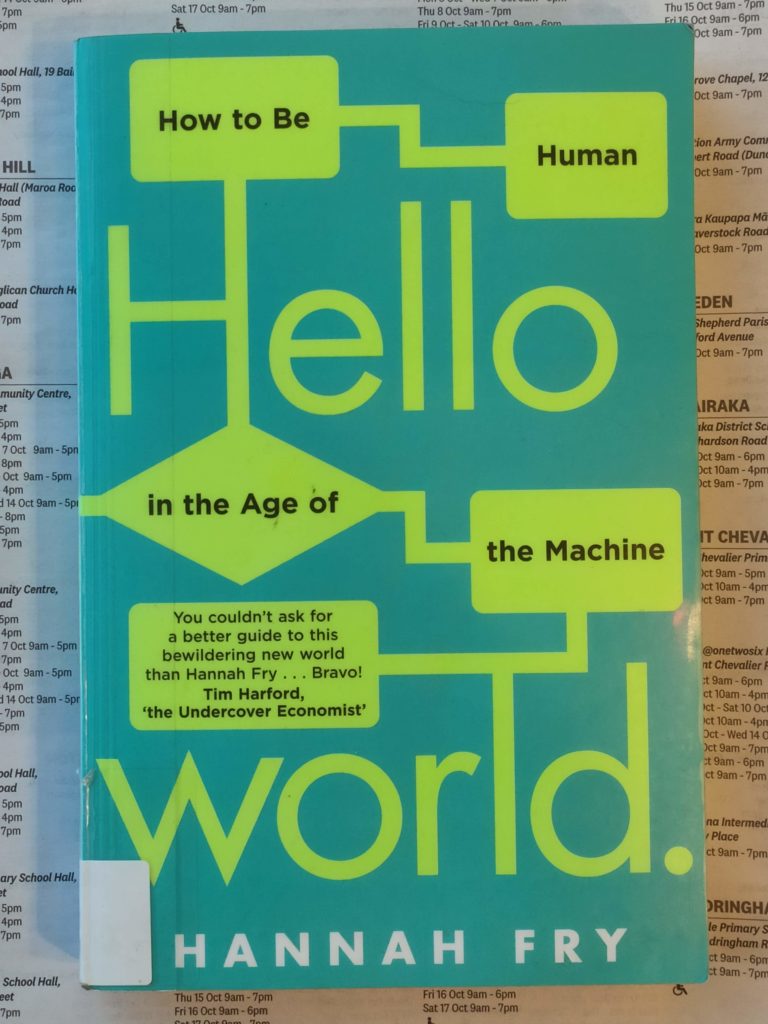
“Algorithms” will save the world, or possibly destroy it. This book is a good survey of how computerised algorithms are used and misused, and how they can be harnessed so their power can be used for good rather than evil.
There are descriptions and analyses of all kinds of algorithms, from potentially useful ones like self-driving algorithms for cars, to controversial ones like profiling algorithms to detect potential criminals. Of course the self-driving car topic leads inevitably to a discussion of the trolley problem. Should a car kill its occupant if doing so would save 5 pedestrians? But who would want to travel in such a car?
Currently many algorithms are criticised for being racist or sexist or some other ist. This book has a good discussion of how this can be the unavoidable result of the underlying statistics. For example, a murderer-discrimination algorithm would almost certainly find far more male false positives than female, simply because most murderers are in fact male. So the algorithm just preserves the existing real-world bias. This can be partially offset by tweaking the algorithms — a sort of affirmative action — but the challenge then is to not just make things worse.
I enjoyed this book. It covers a lot of ground in this subject which is becoming more newsworthy every day.